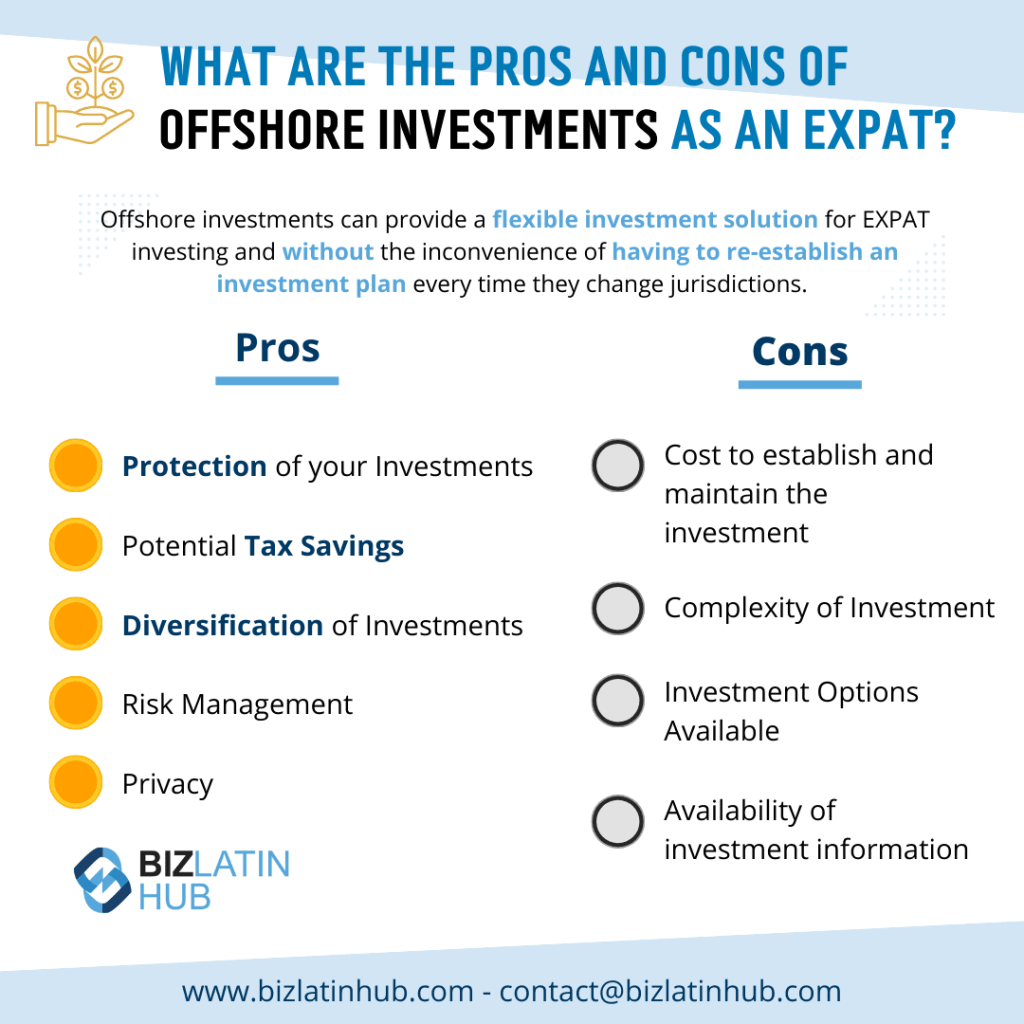The Benefits and drawbacks of Offshore Investment for Long-Term Financial Security
The Benefits and drawbacks of Offshore Investment for Long-Term Financial Security
Blog Article
Exactly How Offshore Financial Investment Works: A Step-by-Step Break Down for Capitalists
Offshore investment provides an organized path for capitalists seeking to maximize their financial approaches while leveraging international possibilities - Offshore Investment. The process starts with the mindful selection of a territory that aligns with a capitalist's objectives, followed by the facility of an account with a reliable offshore organization. This systematic approach not just permits portfolio diversification yet also requires continuous monitoring to browse the intricacies of international markets. As we explore each action in information, it ends up being obvious that understanding the nuances of this financial investment strategy is critical for accomplishing optimum outcomes.

Understanding Offshore Investment
Recognizing overseas financial investment includes acknowledging the calculated benefits it supplies to individuals and firms looking for to maximize their financial portfolios. Offshore financial investments generally describe possessions kept in an international territory, often defined by favorable tax obligation routines, regulative environments, and personal privacy defenses. The key purpose behind such investments is to enhance funding development, diversity, and threat management.

Financiers can access a wide array of financial tools via offshore venues, including supplies, bonds, common funds, and property. These investments are commonly structured to follow regional legislations while providing flexibility in terms of property allotment. In addition, overseas financial investment techniques can make it possible for businesses and people to hedge versus residential market volatility and geopolitical dangers.
Another trick aspect of offshore financial investment is the potential for improved privacy. Many overseas jurisdictions have rigorous confidentiality legislations, which can protect a capitalist's financial info from public disclosure. It is crucial for investors to continue to be compliant with their home nation's tax obligation laws and coverage needs, as non-compliance can lead to serious fines. Consequently, a detailed understanding of both the advantages and obligations related to offshore financial investments is important for notified decision-making.
Benefits of Offshore Investing
Capitalists frequently turn to offshore spending for its various advantages, including tax obligation performance, asset security, and portfolio diversification. One of the primary advantages is the potential for tax optimization. Many overseas jurisdictions offer positive tax regimes, permitting capitalists to lawfully minimize their tax liabilities and maximize returns on their financial investments.
Additionally, overseas accounts can supply a layer of asset security. Offshore Investment. By putting possessions in politically steady jurisdictions with solid privacy legislations, investors can protect their wealth from possible legal cases, lenders, or economic instability in their home nations. This form of defense is especially attracting high-net-worth people and entrepreneurs facing litigation risks
Additionally, offshore investing facilitates portfolio diversification. Accessing worldwide markets enables financiers to explore possibilities in various possession classes, consisting of genuine estate, supplies, and bonds, which may not be available locally. This diversity can decrease overall profile threat and enhance possible returns.
Eventually, the advantages of offshore investing are compelling for those seeking to enhance their financial techniques. It is important for capitalists to extensively understand the policies and effects associated with offshore investments to make certain compliance and achieve their financial objectives.
Choosing the Right Jurisdiction
Choosing the suitable territory for overseas investing is an important choice that can dramatically affect a capitalist's economic strategy. The right jurisdiction can offer various benefits, consisting of beneficial tax frameworks, asset protection laws, and governing atmospheres that line up with an investor's objectives.
When picking a territory, consider variables such as the political stability and financial health and wellness view it of the nation, as these aspects can impact investment protection and returns. Furthermore, the legal structure surrounding foreign investments should be assessed to guarantee conformity and protection of possessions. Countries understood for robust lawful systems and openness, like Singapore or Switzerland, typically instill better self-confidence among investors.
Furthermore, examine the tax ramifications of the jurisdiction. Some countries use attractive tax obligation incentives, while others may enforce rigorous reporting needs. Understanding these subtleties can aid in maximizing tax liabilities.

Actions to Establish Up an Offshore Account
Developing an offshore account entails a series of systematic actions that make sure compliance and security. The first action is choosing a reputable offshore banks, which need to be accredited and managed in its territory. Conduct thorough study to analyze the institution's reputation, services used, and client reviews.
Next, collect the essential documentation, which typically includes recognition, evidence of address, and info concerning the resource of funds. Various jurisdictions might have differing needs, so it is crucial to confirm what is required.
As soon as the paperwork is prepared, launch the application procedure. This might include filling out types on the internet or personally, depending upon the organization's procedures. Be gotten ready for a due persistance process where the bank will verify your identification and analyze any type of potential risks connected with your account.
After approval, you will get your account details, permitting you to fund your overseas account. It is a good idea to maintain clear records of all transactions and adhere to tax laws in your home nation. Developing the account correctly sets the foundation for efficient overseas investment monitoring in the future.
Handling and Monitoring Your Investments
Once an offshore account is successfully set up, the focus shifts to managing and monitoring your financial investments effectively. This important stage entails a methodical method to guarantee your assets line up with your economic goals and run the risk of tolerance.
Begin by establishing a clear financial investment strategy that details your goals, whether they are prime preservation, revenue generation, or growth. Routinely assess your sites profile's performance versus these benchmarks to analyze whether modifications are required. Using financial administration devices and systems can assist in real-time monitoring of your investments, providing understandings right into market patterns and asset allotment.
Involving with your overseas economic advisor is crucial. They can provide knowledge and support, aiding you browse intricate international markets and regulatory settings. Set up routine testimonials to look at here discuss efficiency, assess market problems, and rectify your approach as needed.
In addition, remain educated regarding geopolitical developments and financial signs that might affect your investments. This aggressive method allows you to react without delay to altering circumstances, ensuring your overseas profile remains robust and aligned with your financial investment objectives. Eventually, attentive management and continuous monitoring are essential for taking full advantage of the benefits of your overseas financial investment strategy.
Conclusion
In final thought, overseas financial investment uses a critical avenue for portfolio diversification and danger administration. Continued surveillance and collaboration with financial experts continue to be crucial for preserving a nimble financial investment strategy in an ever-evolving worldwide landscape.
Offshore investment presents a structured pathway for investors looking for to enhance their monetary methods while leveraging worldwide opportunities.Recognizing offshore financial investment entails recognizing the tactical advantages it uses to people and companies looking for to optimize their financial portfolios. Offshore financial investments normally refer to properties held in a foreign jurisdiction, often identified by favorable tax obligation routines, governing environments, and privacy protections. In addition, offshore investment techniques can enable people and organizations to hedge versus residential market volatility and geopolitical threats.

Report this page